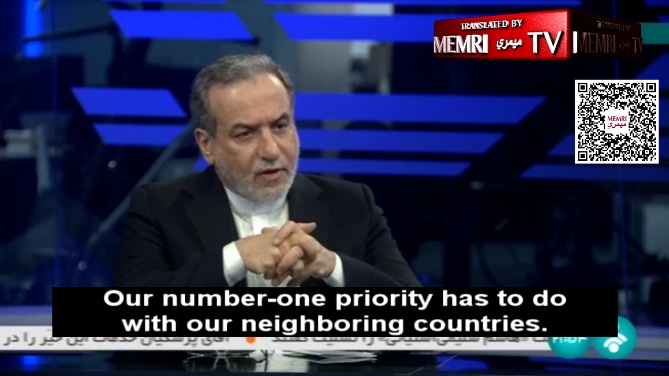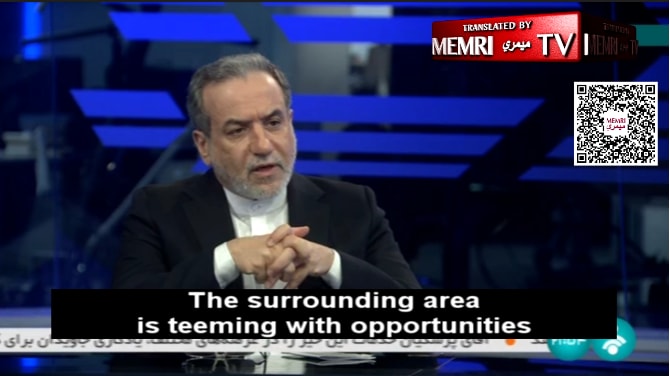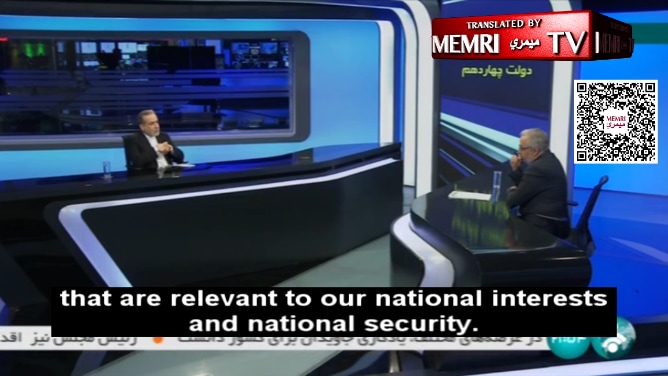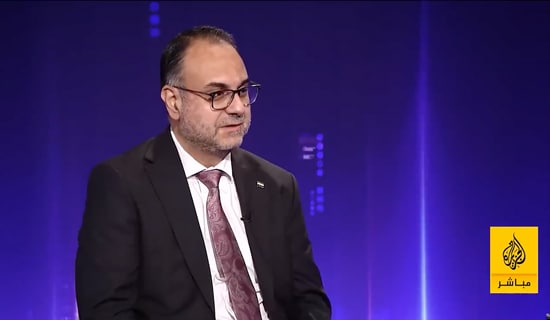
Iran's new Foreign Minister Abbas Araghchi discussed the foreign policy he intends to implement. In an August 23, 2024, interview on IRINN TV (Iran), he said that Iran does not seek to resolve its tensions and animosity with the United States, because they are "based on fundamental differences" in their perspectives. Araghchi said that Iran must manage these tensions and animosity and reduce the price they pay for this. Araghchi said that if the Europeans abandon their "erroneous and hostile" policies toward the Islamic Republic, they can become a priority of Iran's foreign policy again.
Iranian Foreign Minister Abbas Araghchi: "Diplomatic visits that are mainly for appearance's sake will not be enough. Therefore, our foreign policy will be comprehensive, active, and influential. We have defined three missions for our foreign policy. The first mission is to secure our national interests. The second mission is to enhance our national strength and security. The third mission is to elevate our national dignity, and the standing of Iran's Islamic Republic among the world's nations.
"Our number-one priority has to do with our neighboring countries. The surrounding area is teeming with opportunities that are relevant to our national interests and national security. Our second priority is to expand our diplomatic influence to Africa, Latin America, East Asia, and other regions to which we gave less attention in the past. There are many possible opportunities for us in these regions. Our third priority has to do with the countries that have stood by the Islamic Republic in its difficult times. These countries have helped us [to bypass] the sanctions, and we have a very special relationship with them – especially China and Russia.



"Our next priority will be the new powers that have risen, and are playing a role in the international arena – countries like India, South Africa, Brazil, and to some extent Turkey. Our following priority will be the Europeans, who are not really a priority right now. Our relationship with Europe has had many ups and downs in recent years. They have adopted erroneous and hostile policies against the Islamic Republic. Our interaction with them will be dignified and will be based on our interests. It will be based on mutual respect and on equal terms. As our Leader said, 'If they abandon their erroneous and hostile policies, they can become a priority for us once again.'
"Then, there is the issue of the United States that is also mentioned in our program. We are not seeking to resolve the animosity and tensions with the United States, since most of this animosity and these tensions are based on fundamental differences in our perspectives. Basically, there is no point in trying to do this. We have to manage this animosity and these tensions. The Iranians do not need to pay any price for this animosity. Our foreign policy should strive to reduce the price we pay for this animosity. Our position regarding the resistance will not change. It is part of our ideals and it stems from our belief and our doctrine. Our support for all the groups and countries of the resistance axis constitute an unwavering principle, and we will definitely continue these fundamental policies."













